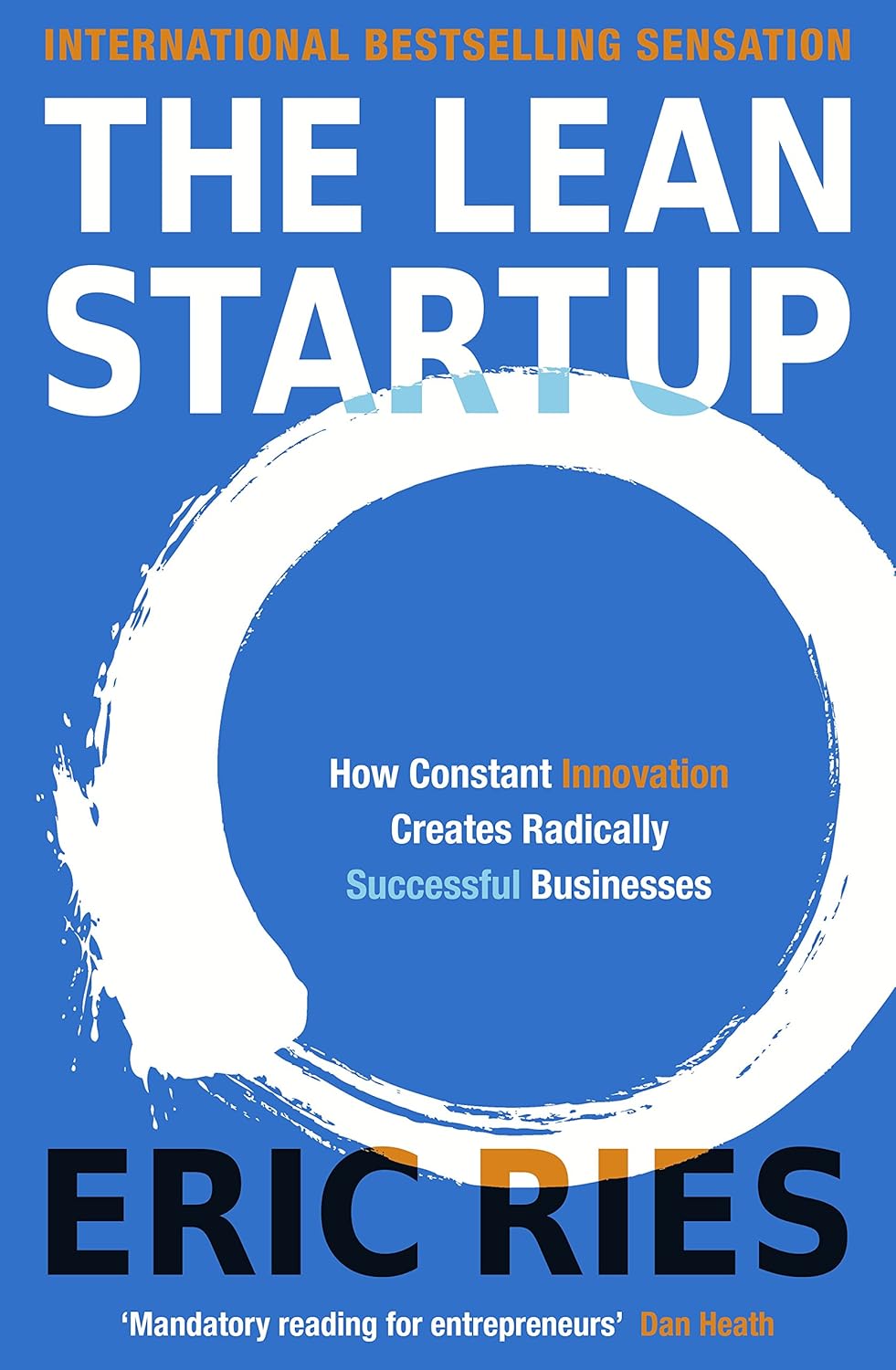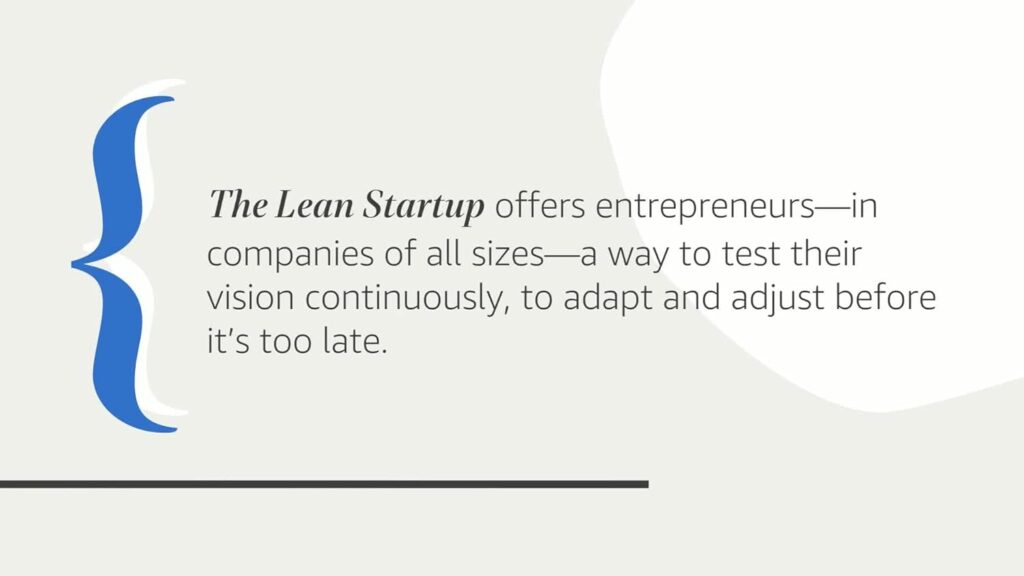
Eric Ries’s The Lean Startup is more than just a guide for entrepreneurs; it’s a manifesto for innovation and adaptability in the modern business world. By introducing the concept of the “lean startup,” Ries provides a practical, systematic framework for launching and managing startups in an era of rapid technological change and uncertainty. This review will explore the core principles of the book, its strengths, its limitations, and its broader implications for entrepreneurs and organizations.
Overview of Key Principles
At its heart, The Lean Startup is built on five key principles:
- Entrepreneurs Are Everywhere: Ries asserts that entrepreneurship is not confined to startups in garages or Silicon Valley tech companies. It can occur in any organization, from small businesses to large corporations, as long as there is a desire to create something new under conditions of extreme uncertainty.
- Validated Learning: The most critical measure of progress for a startup is validated learning—evidence that the company is creating value for its intended customers. Ries emphasizes experimentation and feedback loops over traditional metrics like market share or revenue growth.
- Build-Measure-Learn: This iterative process forms the backbone of the lean startup methodology. Entrepreneurs create a minimum viable product (MVP), measure its performance, and learn from the data to make informed decisions about whether to pivot or persevere.
- Innovation Accounting: Ries introduces a new way to measure progress in startups through metrics that focus on actionable insights rather than vanity metrics like website traffic or social media followers.
- Pivot or Persevere: A key decision-making point in the lean startup methodology is determining whether to continue on the current path or pivot to a different strategy. This decision is guided by rigorous testing and customer feedback.
.

.
Strengths of the Book
1. Practicality and Accessibility
One of the greatest strengths of The Lean Startup is its practicality. Ries avoids abstract theories and instead provides concrete tools and methodologies that entrepreneurs can apply immediately. For instance, the concept of the MVP—creating a product with just enough features to attract early adopters and gain feedback—has become a cornerstone of modern product development.
The book’s language is also highly accessible. Ries writes in a conversational style that makes complex concepts easy to understand, even for readers without a background in business or technology. Anecdotes from Ries’s own experience as a startup founder and advisor further illustrate his points and make the material relatable.
2. Emphasis on Learning and Adaptability
In an era where industries are being disrupted at an unprecedented rate, Ries’s focus on learning and adaptability is both timely and essential. The build-measure-learn cycle ensures that startups remain agile and responsive to changing market conditions. By framing failure as an opportunity for learning rather than a setback, The Lean Startup encourages a culture of experimentation and resilience.
3. Broad Applicability
While the book is aimed primarily at entrepreneurs, its principles are applicable to a wide range of contexts. Large corporations can use the lean startup methodology to foster innovation and develop new products, while non-profits and government organizations can apply the same principles to solve social problems. Ries’s assertion that “entrepreneurs are everywhere” broadens the book’s appeal and underscores the universality of its ideas.
Limitations of the Book
1. Overemphasis on Startups
Despite its claim that entrepreneurship can happen anywhere, much of The Lean Startup is geared toward traditional startups and tech companies. Readers from other industries or organizational settings may struggle to see how the principles apply to their specific challenges. For example, the MVP approach may not translate as easily to industries with high regulatory barriers or long development cycles, such as healthcare or aerospace.
2. Lack of Depth in Certain Areas
While The Lean Startup introduces a variety of concepts, some are only lightly explored. For example, the discussion of innovation accounting—a critical component of the lean startup methodology—feels underdeveloped compared to the attention given to MVPs and the build-measure-learn cycle. Readers seeking in-depth guidance on metrics and financial planning may need to look elsewhere.
3. Potential for Misapplication
The simplicity of the lean startup methodology can be both a strength and a weakness. While the concepts are easy to grasp, they can also be misunderstood or misapplied. For instance, creating an MVP that is too minimal may result in poor customer feedback and misguided decisions. Similarly, over-reliance on customer input can stifle innovation by discouraging bold, visionary ideas that may not have immediate market validation.
Broader Implications
1. Cultural Shift in Business
The Lean Startup has contributed to a broader cultural shift in how businesses approach innovation. By emphasizing speed, experimentation, and customer-centricity, Ries has influenced practices in industries ranging from software development to retail. Agile methodologies, design thinking, and “fail fast” philosophies all draw inspiration from the lean startup movement.
2. Impact on Education and Policy
The book’s ideas have also permeated educational and policy contexts. Universities have incorporated lean startup principles into entrepreneurship programs, while governments have adopted similar approaches to improve public services. For example, initiatives like “lean government” borrow from Ries’s framework to increase efficiency and responsiveness in public sector projects.
3. Challenges of Scaling
One of the most significant challenges highlighted by The Lean Startup is scaling innovation in larger organizations. While the principles are designed for startups, established companies often struggle to replicate the same level of agility and risk-taking. Ries’s follow-up work, including The Startup Way, delves deeper into how large organizations can adopt lean practices, but the challenges remain substantial.
Conclusion
The Lean Startup is a seminal work that has reshaped the way entrepreneurs and organizations approach innovation. By providing a practical, systematic methodology for navigating uncertainty, Ries empowers readers to build businesses that are not only successful but also sustainable in a rapidly changing world. While the book has its limitations, its core principles—validated learning, the build-measure-learn cycle, and the MVP—remain invaluable tools for anyone seeking to create value in an uncertain environment.
For aspiring entrepreneurs, The Lean Startup offers a roadmap to success that is grounded in real-world experience and tested methodologies. For established businesses, it provides a blueprint for rekindling innovation and staying competitive in an era of disruption. Ultimately, Ries’s work serves as a powerful reminder that success is not about avoiding failure but about learning from it and adapting to build something better.
Check out The Lean Startup on Amazon by clicking here.
.
About the Author
Eric Ries is a renowned entrepreneur, author, and thought leader in the field of business innovation. Best known for his pioneering work on the lean startup methodology, Ries began his career as a software engineer and startup founder. His firsthand experiences with the challenges of launching and scaling new ventures inspired him to develop the principles that underpin The Lean Startup.
Ries co-founded IMVU, a social networking platform, where he applied many of the ideas that would later form the foundation of his methodology. During this time, he discovered the importance of rapid experimentation, customer feedback, and iterative development—concepts that became central to his philosophy.
In addition to his work as an author, Ries is a sought-after advisor and speaker. He has worked with startups, Fortune 500 companies, and government organizations to help them adopt lean practices and drive innovation. His influence extends to academia as well, where he has collaborated with universities to integrate lean startup principles into entrepreneurship curricula.
Ries’s contributions to the business world have earned him widespread recognition, and his ideas continue to shape how organizations approach uncertainty and change. Beyond The Lean Startup, his subsequent book, The Startup Way, explores how established organizations can harness the entrepreneurial spirit to remain competitive in a rapidly evolving landscape.
Check out Eric Ries other books on Amazon by clicking here.
If you found this review useful please share it with friends and family and then check out some of our other Book Reviews.
.
